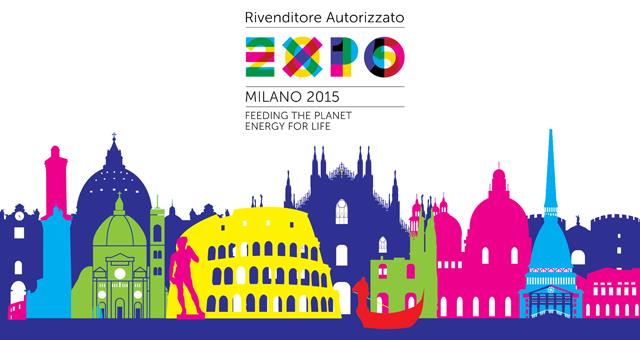Since the 19th century, World’s Fairs have gathered people from many parts of the world, allowing countries to show their most recent technological advances and their culture, as well as promoting their homelands. Ever since the first world’s fair in London in 1851, the goals of these events have been both high-minded as well as commercial. As times change, world expositions have changed to fit those times, providing a glimpse into the realities of the moment. They continue to try to reflect both the commercial needs of their times while presenting the ideals, hopes, and aspirations of people. World’s fairs have traditionally introduced many novelty products such as the telephone, outdoor electric lighting, motion pictures and the Eiffel Tower.
This year’s world fair, however, takes on a new approach. Previous expos looked to show expo-goers the latest glimpse at the “world of tomorrow”, but the focus this year is moving away from the space age and moving to the problems facing our world now. Expo Milano 2015, “Feeding the Planet, Energy for Life”, explores the importance of nutrition for the global population and the central role that people play. The idea of this fair—which started in on May 1st and is finishing up the 31st of October—is to open up a dialogue between international players, and to exchange views on the major challenges surrounding world hunger and the development of food sustainability.
With over 140 countries participating, the Expo expects to have over 20 million visitors, including governments and international organizations, with millions more joining online. Expo Milano is providing an opportunity to reflect upon, and seek solutions to the growing contradictions of our world. On the one hand there are still those suffering from hunger (approximately 870 million people were undernourished in 2010-2012) and, on the other, there are those who die from non-communicable diseases linked to poor nutrition or too much food (approximately 2.8 million deaths from diseases related to obesity or overweight in 2010-2012). Additionally, about 1.3 billion tons of foods are wasted every year. This is the reality we are currently facing and it is the responsibility of the international community to develop sustainable lifestyles and to start using new innovative and technological advances, not only for commercial profit but to create a balance between the availability and the consumption of resources.
Expo Milano hosts four thematic areas. These include Pavilion Zero, which traces the history of humankind via its relationship with food and the Future Food District, an area that explains how technology can change food production, storage, distribution, packaging, purchase and consumption. This area is setting exhibit milestones at 2020 and 2050 so visitors can experience the ways that a normal farm, supermarket or produce package will look in the coming years. The project is at the heart of the exhibition’s theme of feeding the world through innovation.
As part of this area, country pavilions are offering innovative solutions to far reaching problems. The Israeli pavilion, for example, features a forward thinking “vertical field” for crop cultivation in a small space. The crops, watered with direct drip irrigation, are grown on a wall that also reduces water demand. This could be of great use to areas experiencing drought or in urban spaces.
Additionally, for the first time in the history of Universal Expositions, Expo Milano was preceded by a broad debate involving the scientific community, civil society organizations and various institutions. Together, they created the Charter of Milan, which will be the cultural legacy of the expo. This participatory and shared document calls on every person, association, company and institution to assume their responsibility in ensuring that future generations can enjoy the right to food.
Through a participatory process, key Italian and international experts helped to identify the main issues concerning the sustainable use of the planet’s resources. In particular, the Charter of Milan addresses four major issues, all within the context of the right to food:
- What economic and production models can ensure sustainable development in economic and social areas?
- Which of the different types of existing agriculture are able to produce sufficient quantities of healthy food without damaging water resources and biodiversity?
- What are the best practices and technologies to reduce inequalities within cities, where the majority of the human population is concentrated?
- How can we think about food not only as a mere source of nutrition, but also as something that provides a socio-cultural identity?
Individuals, associations, and companies who sign the Charter of Milan take on specific responsibilities with respect to their activities with actionable goals creating awareness, and strongly requesting that governments and international institutions adopt rules and policies at both a national and global level that ensure a fairer and more sustainable future for the planet.
Expo Milano can provide is with a new way to look at food security. By serving as a hub of information, we can learn from each other internationally in order to promote healthy eating habits worldwide. The Expo allows us to look at food from every aspect we face as a society, in a completely integral way. The idea is to look at the whole movement of food from producers, sales, consumption and even disposal and to look at it not only in the physical sphere but also emotional, economic, social and environmental. Food needs to be seen not only as a substance and a fountain of nourishment, but rather as the main way in which to look at our relationships and the world. The expo looks at food through a wide array of lenses, touching upon other social issues such as poverty, the exploitation of certain groups and minorities, agriculture, urbanization, the big food corporations and even spiritual relations to food. If we can see how food plays a role in so many aspects of our lives we can start thinking outside the box about innovative solutions for food sustainability in the years to come.




